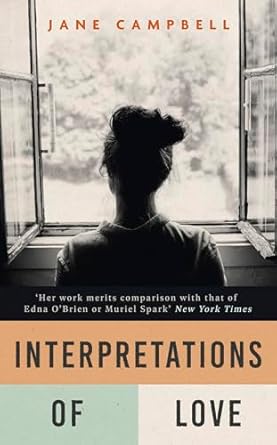3 Stars
This is a cerebral novel with very little plot.
Professor Malcolm Miller has a letter he didn’t deliver 50 years earlier. It was written by his sister Sophy just before her death and that of her husband in a car accident which left their daughter Agnes an orphan. Agnes, now in her 50s, is returning to her ex-husband’s home for the first time to celebrate the wedding of their daughter. Malcolm decides this would be a good time to show the letter to his niece. Also present at the wedding is Dr. Joe Bradshaw, the intended recipient of Sophy’s letter. He was once Agnes’ therapist; from his first session with her, Joe felt an immediate attraction to Agnes. Agnes’ ex-husband’s second wife and Joe’s second wife are sisters, but the letter suggests that Agnes and Joe may be connected in a closer way.
The novel opens promisingly with an interesting premise. A wedding brings together family but there’s a long-held secret about to be revealed which will upend many lives. Unfortunately, the novel does not develop the potential conflicts; in fact, it is not until almost two-thirds into the book that the letter is finally given to Agnes by her uncle. Instead, we are given pages of interior monologues from Malcolm, Agnes, and Joe. The three characters, each in first person, ponder and ruminate and brood and deliberate and muse and meditate. Their endless introspections about their loves and losses become tedious.
This is not a light, easy read. There are lengthy paragraphs, sometimes pages long, with little dialogue. The prose is formal and elaborate, as befits the highly educated characters, but that erudite style requires the reader to pay serious attention. Discussions of psychoanalysts Freud and Jung and the philosopher Spinoza are frequent. These reflect the author’s educational and professional background, but references to Oedipal and Electra complexes might not be common knowledge to many readers. There is at times almost a textbook feel to the novel.
Though we are given intimate knowledge of the characters’ thoughts and feelings, I did not find them relatable. The formal language makes them feel remote, and they sound very similar so it is difficult to distinguish among them. We don’t see them living; we only read their thoughts about their lives, and their never-ending angst becomes mind-numbing. Malcolm is my favourite and I would have preferred more of him and less of Agnes and Joe, but generally I just felt indifferent about all of them.
The book examines the lasting effects of tragedy and loss. Both Agnes and Joe were orphans from an early age, and their losses have shaped their lives and relationships for the rest of their lives. Likewise, Malcolm’s life was deeply affected by the death of his sister. Though the three main characters have loved and been loved, all seem to be looking for the love they lost in their formative years. Early on there is mention made “that it is not so easy to keep the past back there where it belongs since it tends to leak into the present all the time. No matter how firmly you slam the watertight door and lock it and then throw the whole weight of your body against it in order to resist the monstrous pressure exerted on the other side by all those emotions from the past which you do no want to feel again you will fail and they will smash through and hurl you to the ground and then once more overwhelm you.”
This is not a light summer read. Its dense style with pages of character self-analysis and detailed descriptions will not appeal to anyone looking for an action-packed book. There’s also a melancholic atmosphere throughout. I can’t say I enjoyed the book; at times I considered not finishing it.
Note: I received an eARC from the publisher via NetGalley.

No comments:
Post a Comment